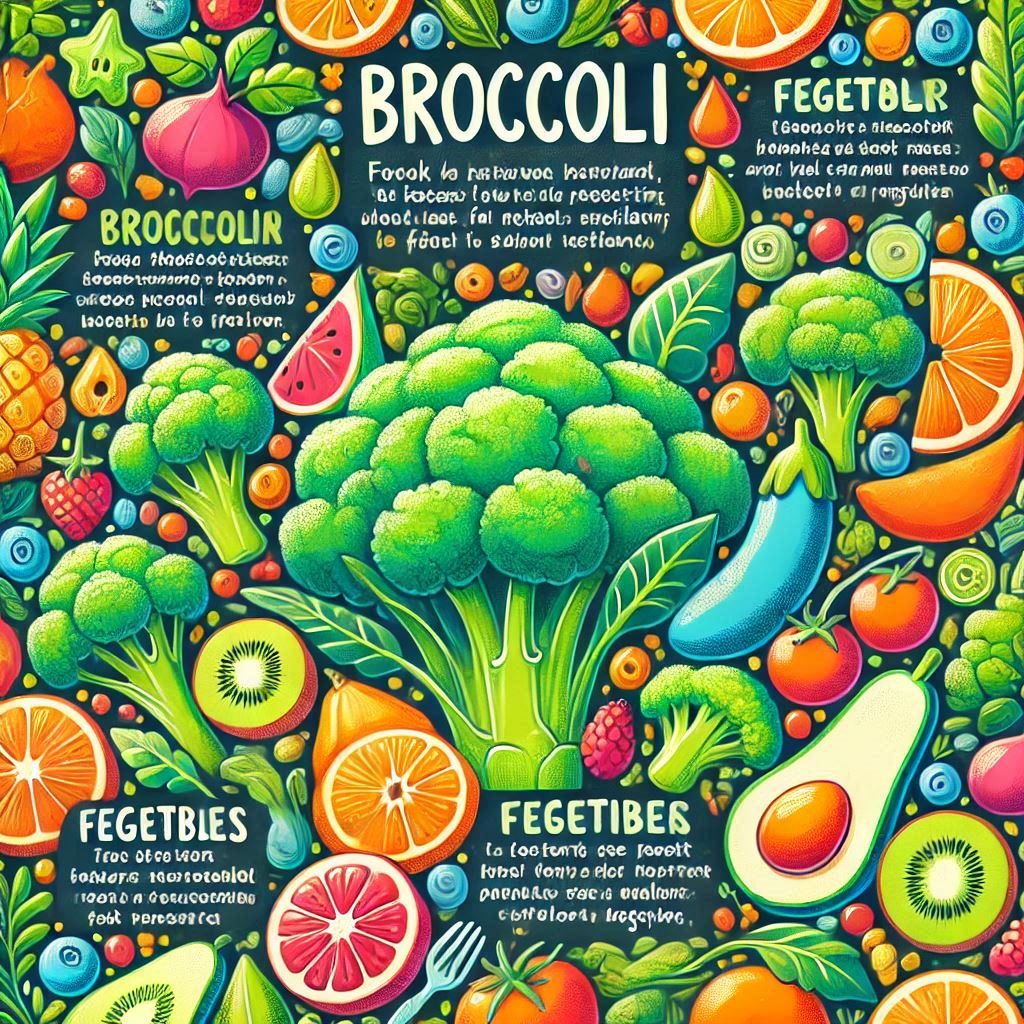
Broccoli Benefits: A Superfood Explained
Broccoli isn’t just your mom’s favorite vegetable—it’s a true nutritional powerhouse and often ranks among the healthiest foods you can eat. Packed with essential vitamins, minerals, antioxidants, and disease-fighting compounds, broccoli offers benefits that go far beyond basic nutrition.
Whether you steam it, stir-fry it, or toss it into salads, this green veggie deserves a regular spot on your plate. Here’s an in-depth look at why broccoli is considered a superfood and what it can do for your health.

1. Nutrient-Rich Profile
Broccoli is low in calories but loaded with essential nutrients that your body needs to function optimally.
🥦 Vitamins:
- Vitamin C: Just one cup of broccoli provides over 100% of your daily requirement. It supports immune function, collagen production, and skin health.
- Vitamin K: Important for blood clotting and bone health.
- Vitamin A & B-complex: Aids in vision, metabolism, and energy production.
🧂 Minerals:
- Potassium: Regulates blood pressure and heart health.
- Calcium: Essential for strong bones and teeth.
- Iron: Helps in the formation of red blood cells and prevents fatigue.
🧬 Fiber:
- Broccoli is a great source of dietary fiber, which promotes regular digestion, prevents constipation, and supports healthy gut bacteria.
2. Antioxidant Properties of Broccoli
Broccoli is packed with antioxidants, which help protect your body from oxidative stress—a process linked to aging and many chronic diseases.
Key antioxidants in broccoli include:
- Lutein and zeaxanthin: Promote eye health.
- Vitamin C and E: Help neutralize free radicals.
- Sulforaphane: A unique, potent antioxidant known for its health-boosting properties.
These compounds help reduce inflammation and may protect against conditions like heart disease and neurodegenerative disorders.
3. Broccoli Supports Cancer Prevention
One of broccoli’s most impressive claims to fame is its potential role in cancer prevention.
🌱 Sulforaphane:
- A natural plant compound found in cruciferous vegetables.
- Research shows it may inhibit the growth of cancer cells, especially in breast, prostate, and colon cancers.
🧪 Detoxifying Enzymes:
- Compounds in broccoli help activate liver enzymes that detoxify harmful substances.
- They aid in the elimination of potential carcinogens before they can damage DNA.
While more human studies are needed, including broccoli regularly in your diet may lower the risk of certain cancers.
4. Broccoli Boosts Immune System
Thanks to its high vitamin C content, broccoli plays a key role in maintaining a strong immune system.
- It enhances white blood cell function.
- Helps in faster recovery from illnesses like the common cold.
- Works synergistically with other nutrients like zinc and beta-carotene.
5. Broccoli Promotes Heart Health
Broccoli may benefit your cardiovascular system in multiple ways:
- Lowers bad cholesterol (LDL) levels.
- Improves blood vessel function, reducing the risk of atherosclerosis.
- Contains sulforaphane and fiber, both of which have anti-inflammatory effects beneficial for heart health.
6. Supports Bone Health
With a combination of calcium, vitamin K, phosphorus, and magnesium, broccoli supports:
- Strong bones and teeth
- Prevention of osteoporosis
- Faster healing of fractures
This makes it especially important for women and older adults at risk of bone density loss.
7. Improves Digestion
Broccoli’s high fiber and water content promote a healthy digestive system by:
- Supporting bowel regularity
- Feeding beneficial gut bacteria
- Reducing inflammation in the intestines
Eating it regularly can help with common issues like bloating, constipation, and irregular bowel movements.
8. Good for Skin and Hair
The vitamins and antioxidants in broccoli also support glowing skin and healthy hair:
- Vitamin C aids in collagen production for firm skin.
- Vitamin A helps fight acne and skin aging.
- Iron and zinc support healthy hair follicles and growth.
9. May Aid in Weight Loss
Broccoli is low in calories and high in volume, making it an ideal addition to weight-loss diets.
- Helps you feel full longer
- Reduces cravings thanks to fiber and micronutrients
- Supports metabolism with B vitamins and iron
Include it steamed, roasted, or raw in salads and meals to increase satiety without extra calories.
10. Versatile and Easy to Cook
The best part? Broccoli is incredibly versatile and easy to incorporate into your diet:
- Steam it for a quick side dish.
- Add it to stir-fries, pasta, or omelets.
- Blend it into soups and green smoothies.
- Roast with garlic and olive oil for a flavorful crunch.
Pro Tip: Don’t overcook broccoli, as it can destroy some nutrients like vitamin C and sulforaphane. Light steaming is ideal.
Final Thoughts
Broccoli truly earns its title as a superfood. It’s nutrient-dense, antioxidant-rich, and has potential disease-fighting properties—all while being low in calories and easy to cook.
So whether you’re aiming to boost your immune system, improve digestion, or just eat healthier overall, adding more broccoli to your meals is a smart and delicious choice.

Ready to make broccoli a staple in your kitchen? Start by adding it to your weekly meal prep and experiment with different cooking styles. Your body—and your taste buds—will thank you.










